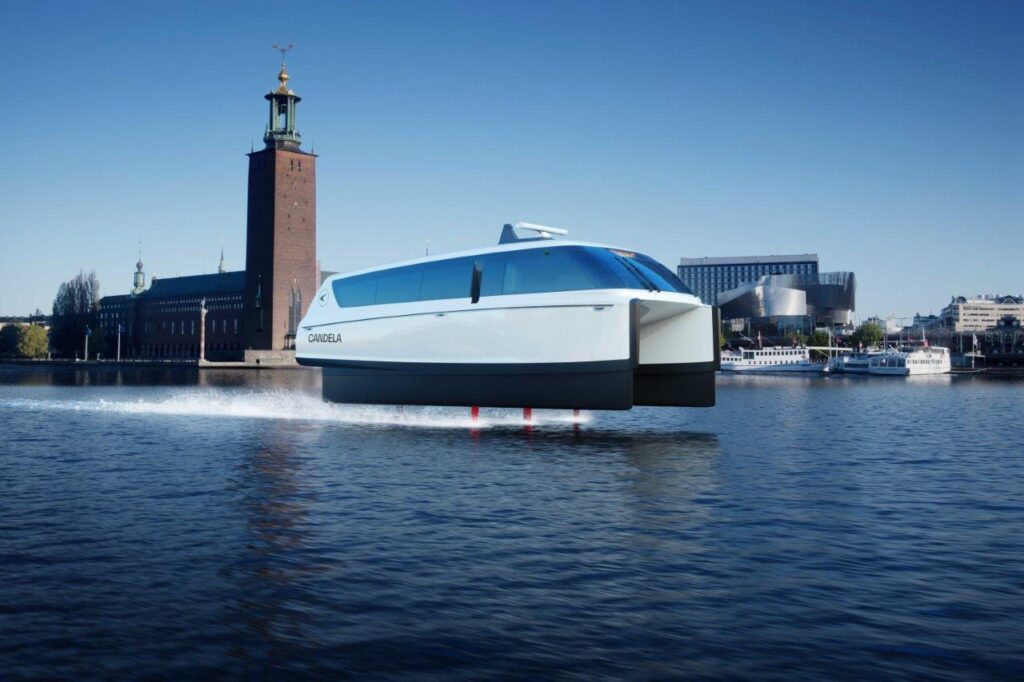
Candela raises $20m for mass electric ferry production
Candela says it has raised $20 million to bring its passenger hydrofoil vessels to mass production.
“Waterborne transport is the next frontier set for sustainable disruption, and it’s happening now,” says Candela CEO and founder Gustav Hasselskog.
The company says its electric hydrofoil technology will help operators switch to sustainable electric vessels, by offering shorter travel times, frequent departures and more comfort than traditional ships while substantially decreasing operational costs.
The $20m investment is co-led by EQT Ventures and investor duo Joel Eklund (Fosielund Holding AB) and Svante Nilo Bengtsson (Marknadspotential AB), with participation from Ocean Zero LLC, among others.
The funds will be used to bring Candela’s 30-passenger ferry Candela P-12 Shuttle to mass production in the company’s new Stockholm factory.
In June 2022, MIN revealed pictures of the P-12 Shuttle prior to it starting a nine months trial in Stockholm.
The P-12 Shuttle is said to use 80 per cent less energy than traditional vessels, which translates into a range of 60 nautical miles on one charge at a cruising speed of 27 knots. And, a recent life cycle analysis by Stockholm’s Royal Institute of Technology concluded that a P-12 ferry will emit 97.5 per cent less carbon dioxide over its lifetime compared to a diesel vessel of the same size – a stunning figure that includes emissions from production, operations over 30 years and recycling.

“This new investment will unlock the potential of under-utilised waterways for climate friendly, high-speed commuting. The P-12 Shuttle will in many cases be faster and cheaper than land transport like bus lines, and it will be profitable for operators from day one,” believes Hasselskog.
Candela says it is in sales discussions with more than 180 interested parties about the P-12 Shuttle systems. The first operator will be the Region of Stockholm, moving commuters between the suburb of Ekerö and central Stockholm. Travel times will be cut from currently 55 minutes by car, bus or conventional diesel ferry to just 25 minutes in the P-12. Since the electric ferry creates zero wake, it has received an exemption from the 12-knot speed limit on Stockholm’s urban waterways, resulting in more frequent departures compared to traditional ferries.
Across the coastal and urban segments of vessels, Candela estimates the total addressable market for its electric watercraft to be more than $30bn USD.
“Candela is on a trajectory to become a generation-defining company, revolutionising the waterborne transportation market by offering the most climate friendly, low-cost and customer-delighting boating experiences in the world,” says Lars Jörnow, partner at investor EQT Ventures.
The post Candela raises $20m for mass electric ferry production appeared first on Marine Industry News.
